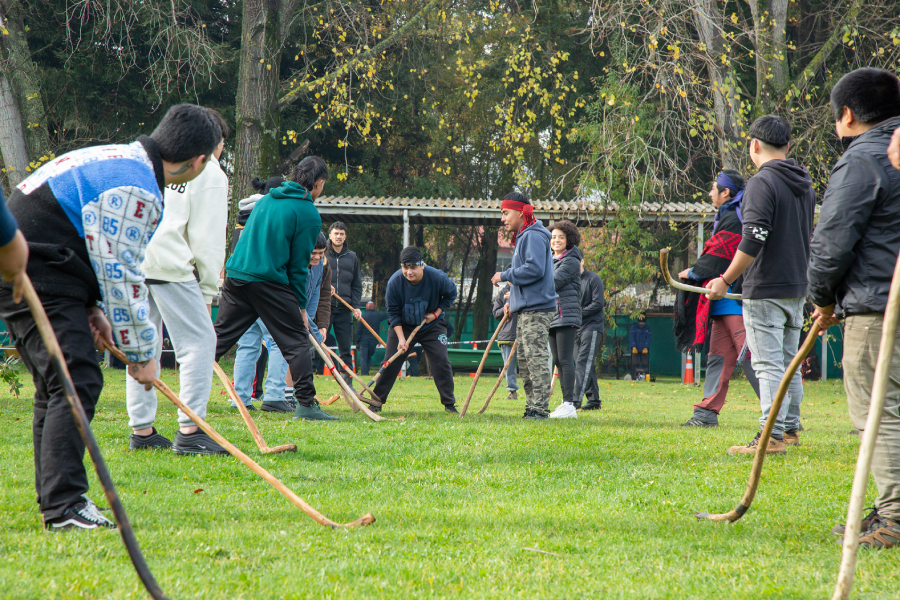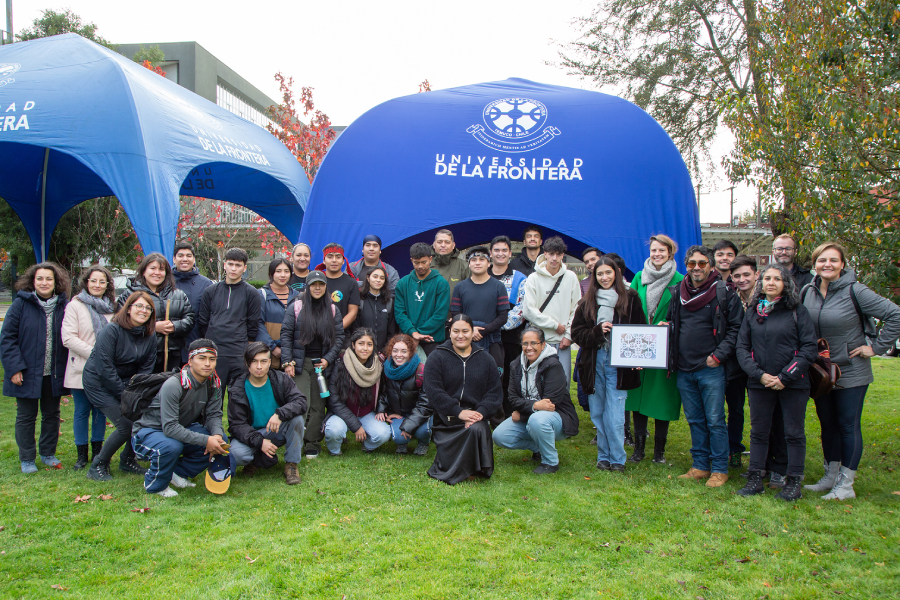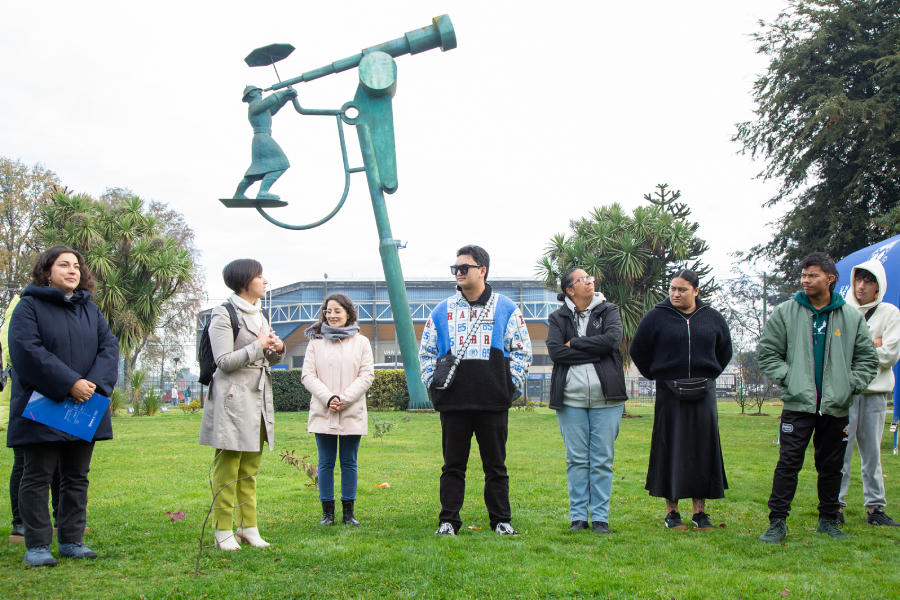|
The agenda promoted the dialogue and partnership between young students of the Māori culture and the Mapuche culture, with traditional rituals and games, a visit to the ‘Interactive Ruca’ of the Rural School Raluncoyan, and to the Pucon Campus of UFRO. |
Within the framework of the Nga Herenga Whakapapa (NHW) programme of the Embassy of New Zealand, a delegation of students and teachers of the Māori culture from New Zealand visited Universidad de La Frontera (UFRO) in Chile. The Embassy and UFROs International Affairs Office developed the agenda for the intercultural meetings, which are an important step forward regarding the Internationalisation Strategy of UFRO and Global Citizenship, which is an important pillar of the Educative Model of UFRO. Thanks to the programme and the collaborative work, these young indigenous peoples were able to share experiences and to get to know the current local reality. The director of the International Affairs Office, Paulina Latorre Bahamondez, explained: “These meetings are important for our international relationships. They allow us to connect with other cultures, other people and to get to know other knowledge. In addition, these initiatives are a concrete example of what we want to achieve as a university”. The Embassy of New Zealand and the International Affairs Office of UFRO put together a comprehensive work agenda, which included a ‘Mizawun’ (a space for knowledge exchange and conversation) at the Institute for Indigenous and Intercultural Studies of UFRO, with participation of UFRO students who are part of the RUPU Programme, which supports students of the Mapuche culture to settle into the university environment. According to the director of the Institute for Indigenous and Intercultural Studies, Osvaldo Curaqueo Pichihueche, the meeting took place “in a ceremonial environment, with individuals of each indigenous peoples, as a great moment to promote respect for and the importance of each ones identity”. “This initiative allows us to recognize and value our identities and knowledge, and to interact and share on the basis of the activities and protocols that are characteristic for each of these indigenous cultures,” he added. ACTIVE DIALOGUE BETWEEN CULTURES The Māori delegation and students of UFROs RUPU programme visited the Rural School Raluncoyan, where they had an interesting encounter with children of the community and the sector. Teachers and employees of the Municipal Department of Education in Temuco participated in this activity, together with their director, Marcelo Segura. PUCON CAMPUS The next day, the delegation visited UFROs Pucon Campus, where they held a ‘Llellipún’, which is a welcome ceremony in the Mapuche culture. In addition, they visited the Interactive Volcanological Centre of the La Araucanía Region and the Intercultural Village ‘Trawupeyüm’ in the city of Curarrehue. “The idea of these activities is to create and promote a cultural exchange, taking into account that this programme and the visit of the Māori delegation focus on getting to know the life of the indigenous peoples,” explained Janina Hanswillemenke, the organizer of these activities and the coordinator of internationalisation at UFRO. NGA HERENGA WHAKAPAPA Nga Herenga Whakapapa consists of young Māori students and entrepreneurs who want to be in contact with young indigenous students with similar ideas in the Chilean cities Santiago and Temuco. Nga Herenga Whakapapa describes the “binding of many family connections”, which is the basis for a significant relationship with their Chilean peers. In addition, this initiative gives the young Māori leaders the opportunity to have an intercultural exchange and global interaction, which they can apply in their future projects. Written and translated by: UFRO Communications Office
|


